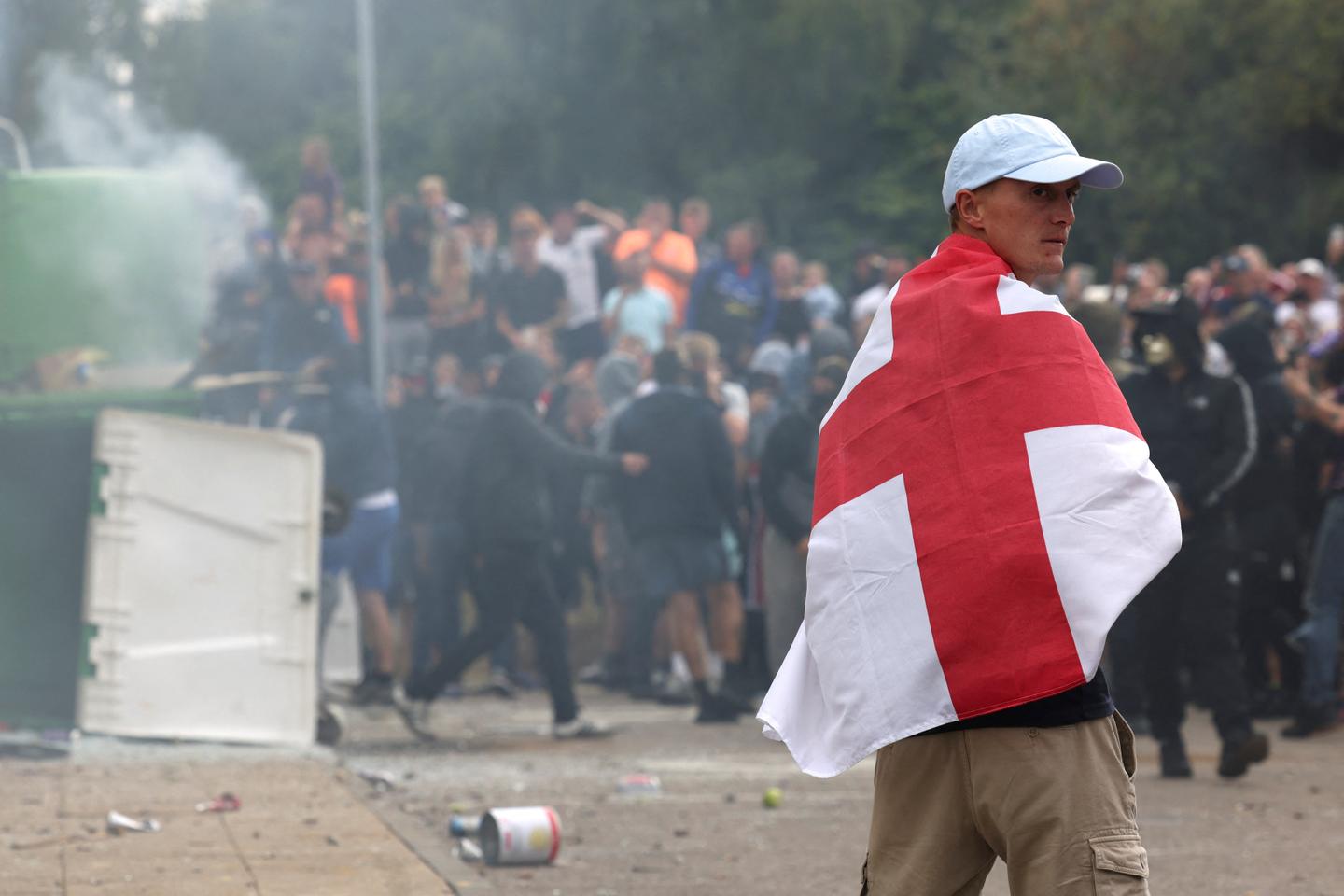


Attacks on mosques and buildings housing asylum seekers, clashes with police and anti-racism activists: England and Northern Ireland have been rocked for the past week by far-right riots targeting immigrants. This despicable outbreak of nationalist, anti-Muslim and xenophobic violence – punctuated by slogans such as "Kick them out!", "We want our country back", and "England till I die!"– began the day after the knife attack that claimed the lives of three girls in a dance club in Southport, northwest of England, on Monday, July 29.
To counter the false information, widely shared on social media, according to which the 17-year-old perpetrator of these murders was a Muslim migrant who had smuggled himself across the Channel, the courts have authorized the publication of his true identity: Axel Rudakubana was born in Cardiff to Rwandan parents, with no apparent link to Islam.
One month after coming to power after 14 years in opposition, Prime Minister Keir Starmer's Labour government faces a crisis of unprecedented violence and tenor, combining three of the most explosive political ingredients: insecurity, immigration and the far right.
Faced with a major upsurge in street violence in many cities, from London to Liverpool, via Leeds, Bristol and Rotherham, Starmer has issued a series of forceful statements, describing the perpetrators of violence as "thugs" and welcoming the 400 or so arrests that have already been made. But his reputation for firmness, based on his past as director of public prosecutions (a kind of super prosecutor) who prosecuted the perpetrators of the 2011 riots, has not shielded him from the criticism of the Conservative opposition. They deem his reaction to be belated and criticize him for abandoning his plan to systematically deport asylum seekers to Rwanda.
Social media
Starmer, who came to power more through the Conservatives' deterioration than a wave of enthusiasm, is faced with the emergence of a hyper-violent far-right movement. Admittedly, this movement is not new – the National Front in the 1970s and the British National Party in the 2000s enjoyed moments of relative popularity – but it remains outside parliamentary debate due to the first-past-the-post electoral system, which squeezes out minority political groups.
Social media seem to have enabled the English Defence League, which has been multiplying anti-Muslim provocations since 2009, to inspire, if not organize, the movement. With the implicit support of the xenophobic Reform UK party, which won 14% of the vote in the July 4 elections. Reform UK's leader, newly-elected Brexit promoter Nigel Farage MP, is blowing on the embers by insinuating that the police lied about the Southport tragedy.
The current riots raise the painful question of the underestimated influence of the far right in the UK, in a country that likes to recall its traditions of political moderation and its past of resistance to Nazism. In reality, the racist, anti-Muslim movement is active in the UK and thrives all the more virulently because the Conservatives, in power until June, played with fire by using xenophobic language. The challenges facing Starmer are immense: Not only must he put a stop to the violence, but he must also devise a humane and controlled immigration policy that his predecessors failed to develop.
